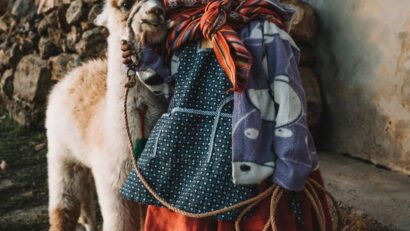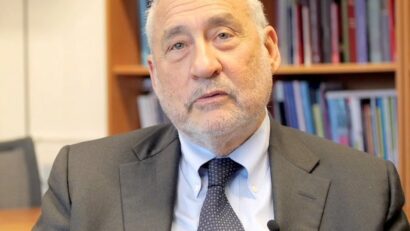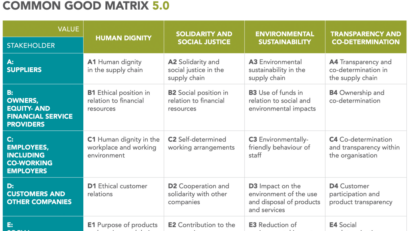
Bolivia: Less poverty and booming economy through nationalisation of mineral resources
Bolivia, a country in the Andes, has developed strongly in recent years. Since the left-wing president Evo Morales took office, poverty in the country has been more than halved, life expectancy has risen by four years and the economy is booming. Bolivia has achieved this through the nationalisation of its mineral resources and an economic policy that takes care of the poorest in the country.
Bolivia was long considered the poorhouse of Latin America. Although the country is rich in raw materials, most of the profits from their extraction went to large corporations from Europe and North America. This changed when the indigenous trade unionist Evo Morales was elected president in 2006. He nationalised the country’s raw materials and introduced far-reaching social programmes to help the impoverished population. As a result, during his time in office, Morales was able to more than halve poverty in Bolivia and the economy grew faster than in almost all other Latin American countries.
From poverty to the presidency
Evo Morales grew up in extreme poverty in the highlands of Bolivia in the 1960s. Four of his brothers died at a young age. He attended school for only six years before helping to feed the family by selling sweets and working in a bakery. As a young adult, he became active in the local coca farmers’ union and took on more and more responsibilities.
The country’s government was controlled by the white upper class, although the population was largely indigenous. The country’s political situation had been marked by wars and coups d’état since independence in 1821. The economy barely moved. Much of the population, especially indigenous peasants in the highlands, lived in abject poverty and had little say in the country’s politics. In addition, the country’s mineral resources were controlled by international corporations. The poor population had hardly anything from the country’s wealth of resources.
The population hardly benefits from the mineral resources of their country. (Foto von Alex Azabache / Unsplash)
Morales wanted to change that. Together with other trade unionists and activists from the indigenous population, he created the Movimento al Socialismo (MAS) party. Their goal was to nationalise the mineral resources, strengthen the rights of the indigenous population and expand the welfare state. Despite opposition from the country’s political elites, Morales was elected the country’s first indigenous president in 2005 with an absolute majority. Under his presidency, which lasted until 2019, the country changed fundamentally.
Nationalisation of mineral resources
One of the first major steps taken by the Morales government was the nationalisation of Bolivia’s oil and gas resources. By law in 2006, the large international corporations that had controlled these mineral resources until then were required to sign new agreements with the state oil and gas company Yacimientos Petroliferos Fiscales Bolivianos (YPFB). In some cases, YPFB took over the extraction of the raw materials completely, in some cases only shares in them. The Morales government took a similar approach when it nationalised the mining industry in 2007. The following year, the Bolivian government also nationalised the largest company in the telecommunications sector.
Through these nationalisations, the government now not only had more control over its own resources, but could also use the profits from their extraction for social and infrastructure projects.
Evo Morales was elected Bolivia’s first indigenous president in 2005. (Foto: Cancillería Ecuador / CC BY-SA 2.0)
The fight against poverty
When the Morales government took office, Bolivia was the poorest state in South America. Morales experienced the bitter poverty of the population himself. His goal and that of the MAS movement was to end this poverty. This was achieved mainly in three ways: strengthening the economy, raising wages and expanding the welfare state.
With the income from the extraction of raw materials, the government modernised the country’s infrastructure. Between 2000 and 2015, public investment doubled. Roads, hospitals, and schools were built. An important focus, however, was the development of rural areas. Through land reform, small farmers gained access to land that was previously in the hands of large landowners. In addition, the government supported food prices to help small farmers and ensure the country’s food security. At the same time, oil and gas refineries were built not only to export raw materials, but to keep value added in the country.
With a stronger economy, higher wages could be paid. A particular focus was on the incomes of the poorest in the country. That is why Bolivia’s minimum wage was quadrupled during Morales’ term in office (2006 to 2019). More money in their pockets meant that Bolivians could now consume more. This further boosted the economy.
Numerous social programmes were created to reduce poverty even further. The universal basic pension Renta Dignidad is particularly central. Many thousands of older Bolivians received a pension for the first time. In addition, poverty-stricken families were supported if they kept their children in school instead of sending them to work. Free meals were also introduced to further increase attendance at school.
Poverty in Bolivia more than halved
Poverty in Bolivia has been more than halved from 47.20 to 15.60 during Morales’ term in office. Life expectancy has also risen from 64 to 68 years during this period. With an average economic growth of 4.7 percent, Bolivia’s economy has grown faster than in almost any other country in Latin America. At the same time, the government has been able to significantly reduce social inequality in the country.
MAS’s reforms mainly help the poorest in the country. (Foto: Lesly Derksen / Unsplash)
More rights for indigenous people
In addition to the social and economic improvements for the broad population of Bolivia, the MAS government was also able to strengthen the political rights of indigenous groups. A new constitution was adopted, making Bolivia a plurinational state. In the course of this, a total of 36 indigenous languages were recognised as official languages. In addition, the indigenous flag Wiphala has since been used on an equal footing with the national flag.
Since the electoral success of MAS, more indigenous people have been elected to the national and regional parliaments or have held ministerial posts. Joshua, a taxi driver in La Paz, explained the political change as follows:
“We used to be governed by the upper class, now our own people govern us. We now live with dignity.”
Morales’ flight from Bolivia and exile
Despite the MAS government’s successes, it has also been heavily criticised. Morales was accused of being too distant from the needs of the indigenous population. In addition, his government was repeatedly accused of a lack of environmental protection. Bolivia’s rainforests are falling victim to slash-and-burn agriculture. The dependence of the Bolivian economy on fossil fuels and raw materials is also repeatedly criticised.
However, Evo Morales received the most criticism for not wanting to leave the presidency. After his first electoral victory, he was elected president in 2009 and again in 2014 with a large majority. In 2018, the Supreme Court overturned a constitutional article that prevented him from running again. When Morales ran for president again the following year, he drew heavy criticism at home and abroad. Irregularities occurred during the election and although Morales clearly won the election, the opposition rejected the result. Riots broke out in many parts of the country. The police and military leadership sided with the opposition. When the military chief asked Morales to resign, he complied and fled Bolivia.
The right-wing opposition then took power and tried to reverse many of the MAS government’s reforms. The welfare state was to be cut back, large corporations were to control the extraction of natural resources again and, above all, the rights and influence of the indigenous population were to be pushed back. The opposition was mainly based on evangelical Christians and the country’s economic elites.
New president continues reform policy
Although it soon became clear that there was no electoral fraud in the 2019 election, the new government repeatedly delayed new elections. Elections were first held in October 2020. These were clearly won by the MAS candidate and former Minister of Economy in the Morales government, Luis Acre. Evo Morales then returned to Bolivia.
[embedded content]
Luis Acre is considered the architect behind Morales’ economic policy and is continuing his reforms. For example, Bolivia managed to keep inflation at the lowest level in Latin America through subsidies for food and energy.
This work is licensed under the Creative Common License. It can be republished for free, either translated or in the original language. In both cases, please cite / Thomas Hackl as the original source/author and set a link to this article on Scoop.me. https://scoop.me/bolivia-poverty-nationalisation-mineral-resources/
The rights to the content remain with the original publisher. Läs mer…

